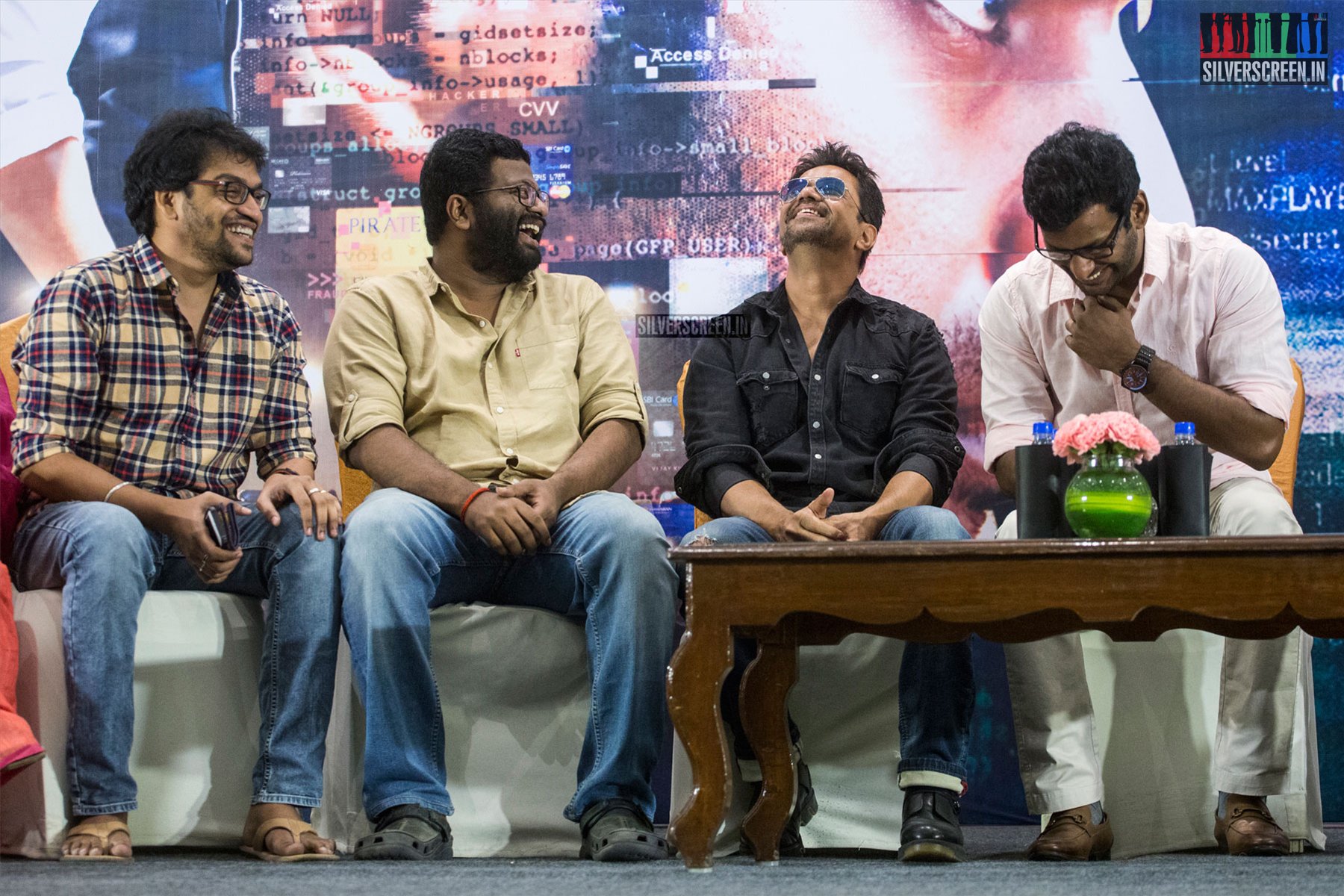Back in 1955, when Sadat Haasan Manto wrote Toba Tek Singh – a seminal short story that distilled the injuries of displacement – the erasure of an individual’s identity was rooted to the piece of ground that was snatched away. Manto’s “no man’s land” was a response to the exodus of an entire population from a country that became unrecognisable almost overnight. The haunting short story built itself around one grievance: Who gets to decide who can be a citizen of a country and who is discarded as a foreigner?
Over five decades since, Toba Tek Singh is resuscitated (not for the first time) in The Long Goodbye, British Pakistani actor-musician, Riz Ahmed’s sensational new album. The introductory song that borrows its title from the eponymous story flips the question of identity on its head. Here, Ahmed, whose ancestors migrated from India to Pakistan, and who was born and brought up in London, seems to be asking “How low does a country fall that it chooses to become alien to its people?” The album, Ahmed’s first project under his own name, sees him rechristening himself as “no land’s man” (in the hypnotic Can I Live), which reclaims Manto’s text while rejecting the contours of a state-sponsored identity.
Released online recently, The Long Goodbye comes at a time when the actuality of waking up to being disowned by your own homeland has once again taken over headlines across the world. The effects are particularly felt in a post-Brexit Britain that is only too willing to accomodate a pervasive atmosphere of xenophobia, enabled in part by the rise of the far-right.
Yet, this time around, partition isn’t a physical event; it’s an emotional bruise. The umbilical cord between a country and the people who make it one, is now snapped under the weight of a hate-fuelled mentality. Even then, the aftermath remains the same. Like a breakup that sneaks up without warning, where one party gains only when the other loses everything.
In the album, Ahmed runs with this metaphor, designing The Long Goodbye as his break-up letter to Britain, framing the country’s relationship with Muslims as a “toxic” affair. The moniker Ahmed gives his abusive partner, is Britney (“Britannia’s a bitch” goes one of the lines).
There are other ways he plays around with the format of the break-up letter: The spectacular album is punctuated by well-meaning voicemails from concerned friends (Mahershala Ali, Mindy Kaling, comedian Asim Choudhary, and Ahmed’s mother make guest appearances) checking in, each of whom are entrusted with making him see the silver lining. If Ali insists that he look inward (“Don’t let her hate for you turn into self-hate”) then his mother reminds him to leave with his “dignity intact”.
The Long Goodbye comes nine years after Microscope, Ahmed’s first studio album and four years after Englistan, his last mixtape. To anyone even faintly acquainted with the multi-hyphenate Ahmed’s work, which consistently acknowledges the burdens of negotiating the world as an immigrant, the ambition of its concept or the unsparing ferociousness of its expression isn’t entirely a surprise. Neither is the raw rage that courses like a barbed wire through the 15-track album, produced by Redinho, a frequent collaborator of Ahmed on his other project, Swet Shop Boys.
However, something about it feels different. Ahmed’s anger – his stab at blurring the lines between the personal and the political – isn’t merely an offshoot of irrational resentment. Instead, it is a pointed ask of dignity and accountability, a potent display of originality in which Ahmed offers up a heart-wrenching historical interrogation of colonialism, Islamophobia, and the dutiful immigrant as a soundtrack.
Perhaps, the full extent of the trauma inflicted by the British Raj has never been this meticulously realised as it is in The Break Up (Shikwa), the fiery opener spoken-word piece. Set to a qawwali sample, the pointed monologue goes over the escalation of Britain’s preferred language of exploitation. In it, Ahmed, whose hyper-focused delivery flits between self-assertion and abject helplessness, alludes to the East Indian Company as a “stray pale chick” who instilled in him the lesson that “right was white and not brown”.
Partition becomes “a scar” in this rendition and sees Ahmed reflecting on the inescapable hold that Britain had over him (“I thought if she accepted me, my worth would be proven”). As the monologue nears its crescendo, it almost doubles up as a wrenching plea for self-preservation. Ahmed’s metaphors for Britain’s disdain toward minorities bristle with a kinetic clarity – “I came home one day and she changed the locks. My brown and white sepia sapna gone to pot.”
The singer’s confession of his breakup (or alternatively his “wake-up”) is followed by Toba Tek Singh, arguably the most evocative track of the record. Accompanied by high-tempo electronic stabs and fast-paced rhymes, there’s a whiff of retaliation in the song – Ahmed almost challenges Britain to put up walls and border in the verses with the confidence of someone who is aware of his “place” even if left “stranded”.
“Went to war for ya, Kohinoor for ya,” Ahmed raps, reminding the country how enmeshed its existence is with the labour of people of colour (“I’m a part of you babe” / “Truth is you ain’t shit without me”). Fast Lava is a similar jolt, its frenetic energy underlined by a jungle beat that has temple bells as its headlining act. Injected with Ahmed’s supersonic bars, it aptly evokes the urgency of his message (“I spit my truth and its brown”).
Can I Live and Deal With It offer up two sides of the same coin. The former is a plea for respite from discrimination, with Ahmed’s wry humour (Tryna put Pakis on the telly / Growing up there weren’t any, now we 24/7 / Either ISIS or Emmys) and an affecting emotional anxiety (“Hope my people don’t end up as a memory”; “Kill us or make a killing off us”). The latter is a confident, upbeat declaration of reincarnation, replete with an impossibly catchy hook. “Yeah we on the podium, winners, and in your cinemas.”
Mogambo which the singer released as a single last year, has the most fun with its sound production; even Ahmed’s voice is comparatively relaxed. In the song, he peels the layers of the hypocrisy of the West toward Muslims. Lines like “Cause we all ever do is die” / They bomb us or we suicide” pulsate with a conscience, the latter half of the song effortessly adopts a lighter touch, aided in part by Ahmed’s dreamy croon (“They wanna kill us all / But they can’t kill us all”). The album’s two mainstream outings – Any Day that has Jay Sean and bhangra drums make appearances and Karma, a saccharine disco-friendly track – while not as perceptive as the rest, take the scope of The Long Goodbye to more than just representation.
Recommended
Ahmed reserves the hardest blow for another spoken word piece: the goose-bump inducing Where You From, a rumination on fractured identities that defines belonging as an embrace. The intensity of the monologue seems riffed on a line from the phoned-in post-breakup message Yara Shahidi leaves for Ahmed in – “You can’t know where you’re going without knowing where you’re from”. “If you want me back to where I’m from, then bruv I need a map” he says in it, grounding the monologue with South Asian influences, from instrumentation to pop-culture references.
Ahmed talks not only of Mo Salah, riots, and stabbings but also of the discriminatory searches that is routine for him at airports. “What’s my damn name?” in Toba Tek Singh becomes “Can’t even pronounce my name” in Any Day and in Can I Live he looks at his insurance as a celebrity through a measured distance: “Eventually they wanna round us up like we cattle / While I’m chatting woke on a panel”.
What Ahmed manages with The Long Goodbye is much higher on the scale than protest music. The record’s political consciousness isn’t merely an embellishment – instead it is embedded at its very core. It’s an efficient case for politics as an artistic weapon, and the celebrity as the modern-day political influencer. To listen to The Long Goodbye is to get an all-access pass to Ahmed’s consciousness – to simmer in his anxieties, existentialism, hysteria, and hurt. It’s topical, compelling, and a singular achievement that will go down in history for daring to confront it in the first place.



